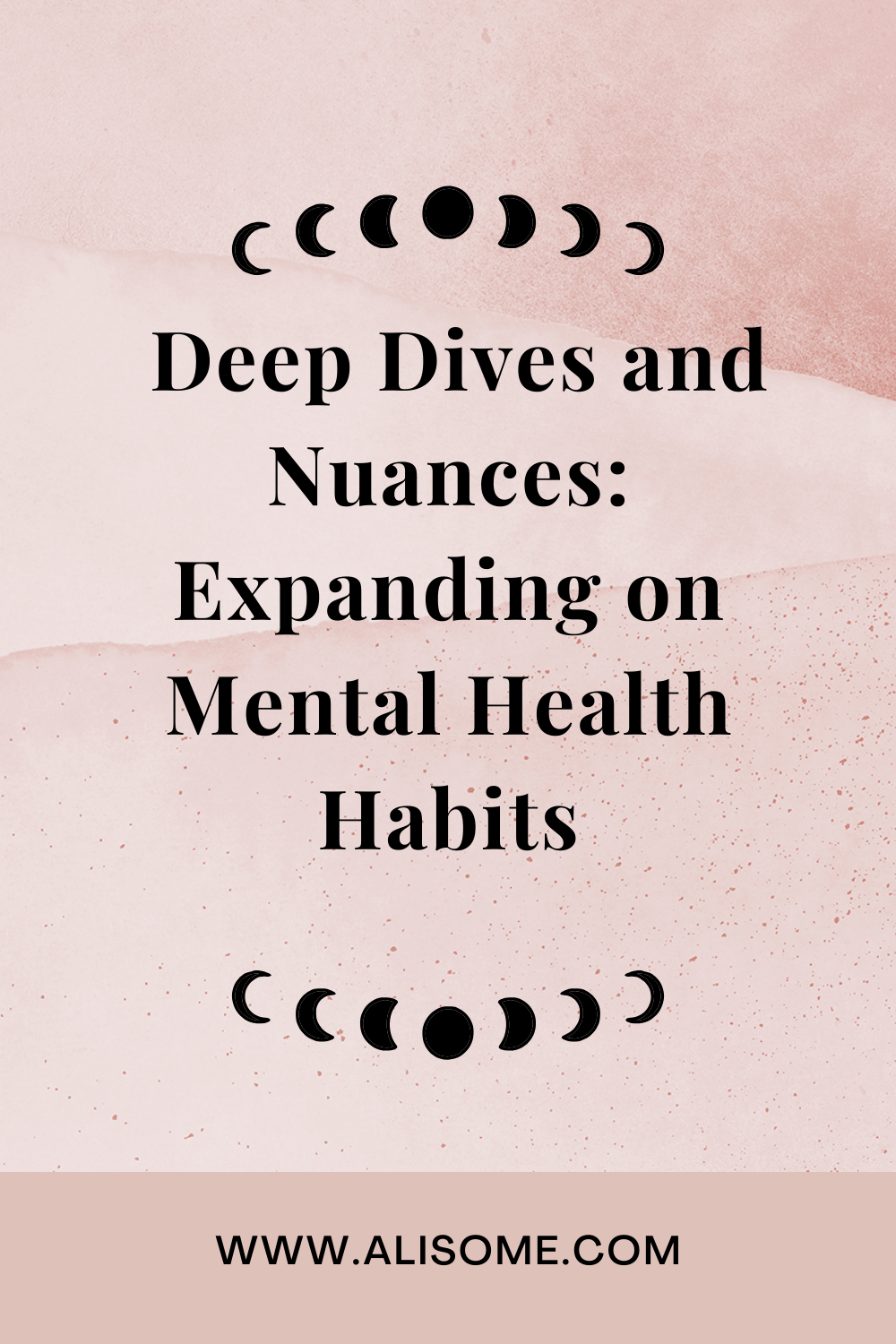While the habits you mentioned are fantastic starting points, here's a deeper dive with some nuanced approaches:
Mindfulness in Everyday Moments:
Nature immersion: Spend time in green spaces, even if it's just 10 minutes in a park. Studies show nature exposure reduces stress and improves mood.
Mindful eating: Savor your food, eat without distractions, and pay attention to how your body feels during and after meals.
Body scan meditation: Focus on different parts of your body, noticing any sensations without judgment. This can reduce physical tension and improve awareness.
Cultivating Gratitude:
Gratitude list: Write down 3-5 things you're grateful for each day, focusing on specific details.
Gratitude jar: Write down things you're grateful for on slips of paper and collect them in a jar. Read them on challenging days.
Gratitude challenge: Set a weekly challenge, like thanking someone new each day, and reflect on the experience.
Challenging Negative Thoughts:
Cognitive reframing: Identify negative thought patterns and reframe them into more positive and realistic thoughts.
Journaling: Write down your negative thoughts, explore their root causes, and challenge their validity.
Challenge the evidence: Ask yourself if the evidence supports your negative thinking or if there might be alternative explanations.
Connecting with Others:
Volunteer with a cause you care about: This fosters connection while contributing to a positive cause.
Join a club or group: Find others with shared interests for social interaction and support.
Practice active listening: Give people your full attention and show genuine interest in their lives.
Random acts of kindness: Perform small gestures of kindness to strangers to connect and enhance your mood.
Remember:
Small changes are powerful: Start with one or two new habits and gradually add more as you feel comfortable.
Be patient and kind to yourself: Progress takes time. Don't get discouraged if you have setbacks, just keep practicing.
Seek professional help if needed: If you're struggling, don't hesitate to reach out to a therapist or counselor. They can provide personalized support and guidance.
I hope this helps you further explore and personalize your journey towards better mental health!
Here are some options:
Specific techniques for relaxation and stress management: Mindfulness meditation, progressive muscle relaxation, deep breathing exercises, guided imagery.
Strategies for managing specific mental health conditions: Anxiety, depression, bipolar disorder, PTSD, etc. (Remember, I cannot diagnose or treat any mental health conditions, but I can provide information and resources.)
Healthy coping mechanisms for dealing with difficult emotions: Journaling, creative expression, talking to trusted friends or family, seeking professional help.
Tips for creating a positive and supportive environment: Cultivating healthy relationships, setting boundaries, saying no, digital detox strategies.
Resources for getting mental health support: Hotlines, online resources, therapy options, support groups.

